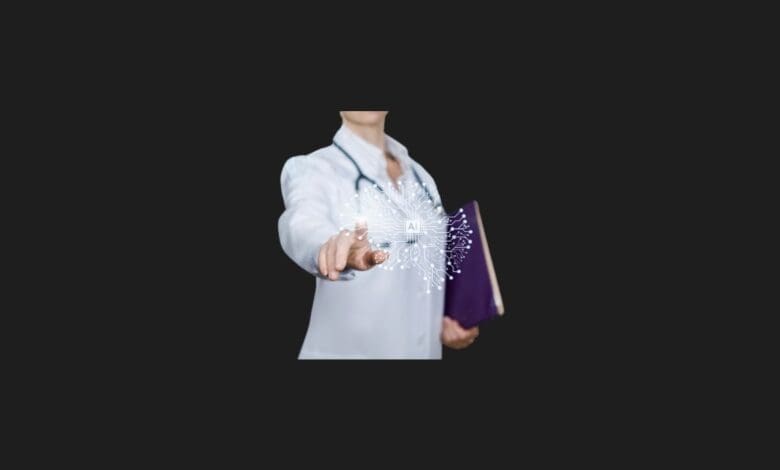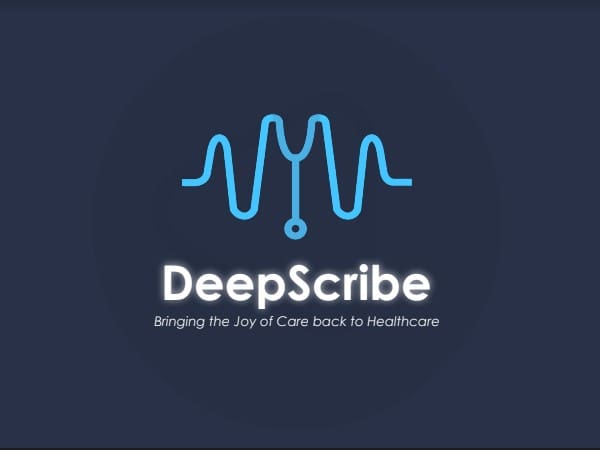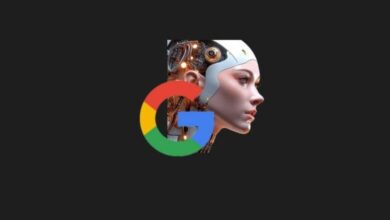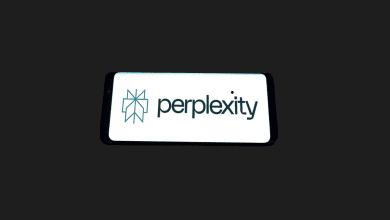Top 10 Medical AI Tools We Use in 2026

Technological advancements have significantly transformed the healthcare industry, with AI-powered medical scribes leading a revolution in patient record management.
These innovative tools alleviate the note-taking workload for healthcare professionals while improving patient care through more efficient documentation. In this blog post, we explore the top five AI medical scribes that are currently making a significant impact in the medical field.
Did you know that there are 1000s of AI tools across more than 50 categories on Metaverseplanet? You can explore our Artificial Intelligence Tools category to discover the latest and most innovative AI solutions tailored for your needs.
1.DeepScribe

DeepScribe, a San Francisco-based enterprise founded in 2017, is leveraging the capabilities of AI to redefine clinical documentation. By utilizing ambient AI, machine learning, and rule-based natural language processing (NLP), DeepScribe automates the creation of medical documentation, transforming the traditional note-taking process in healthcare.
At the core of DeepScribe’s technology is its ability to actively listen to and record patient-doctor conversations in real time through a secure iOS app. The captured audio is then transcribed and analyzed to extract essential medical information, which is organized according to the widely recognized SOAP (Subjective, Objective, Assessment, Plan) note format. This structured documentation is seamlessly integrated into existing Electronic Health Record (EHR) systems, ensuring a smooth workflow for healthcare professionals.
To guarantee the highest level of accuracy, DeepScribe incorporates a stringent human quality control process. This not only ensures precise documentation but also aids in the continuous refinement of the AI system.
Key Features of DeepScribe:
- Real-Time Transcription:
Accurately transcribes conversations in real time, ensuring that critical medical details are captured efficiently. - Ambient AI Technology:
Enables a hands-free documentation experience, allowing healthcare providers to focus on patient care without the distraction of manual note-taking. - Seamless EHR Integration:
Automatically integrates generated notes into existing EHR systems, streamlining the clinical documentation process. - Human Quality Assurance:
Employs a rigorous human quality control layer to ensure maximum accuracy and continuous improvement of the AI system. - SOAP Note Generation:
Automatically generates clinical notes in the standard SOAP format, facilitating organized and comprehensive medical documentation.
DeepScribe stands out as an innovative solution in clinical documentation, empowering healthcare providers to enhance efficiency and accuracy in patient care while reducing administrative burdens.
2.Nuance

Nuance Communications, renowned for its development of voice interface software platforms, has been broadening access to services and information across numerous channels. Its trajectory of innovation has persisted following its acquisition by Microsoft in March 2022.
The AI-driven solution offered by Nuance, named DAX, incorporates voice-enabled ambient clinical intelligence (ACI). DAX excels in transcribing patient encounters with remarkable accuracy and efficiency, and it’s designed to scale effectively across healthcare organizations. This scalability is instrumental in enhancing the healthcare experience for both providers and patients alike.
Key Features of DAX:
- AI-Powered, Voice-Activated ACI:
Facilitates a hands-free documentation process, enabling healthcare providers to capture patient encounters without manual intervention. - Improved User Experience:
Streamlines interactions for both healthcare providers and patients, significantly reducing administrative burdens and enhancing overall efficiency. - Scalability Across Healthcare Organizations:
Designed to adapt to various operational needs, DAX can be effectively scaled to suit different sizes and types of healthcare institutions. - Comprehensive Clinical Documentation:
Ensures that detailed patient encounters are captured accurately and efficiently, contributing to better patient care and record management.
DAX by Nuance Communications stands as a cutting-edge solution that leverages advanced AI and voice technology to transform clinical documentation, making it a valuable asset in the modern healthcare landscape.
3.ScribePT

ScribePT equips users with the capability to dictate notes, capture patient interactions, or utilize a blend of both approaches. Each recording is transformed into an accurate transcription, allowing for the addition of further annotations as needed.
Begin the documentation process with ScribePT’s sophisticated AI, which creates a customized Pre-Note tailored to your specific documentation style. This Pre-Note serves as a preliminary draft that reflects your unique approach to note-taking, setting the stage for efficient and personalized clinical documentation.
With just a click, you can integrate the comprehensive details collected by ScribePT directly into your existing Electronic Medical Record (EMR) system, ensuring a seamless transition of information and enhancing workflow efficiency.
Key Features of ScribePT:
- Intuitive Transcribing Service:
Simplifies the documentation process by accurately transcribing patient interactions and dictated notes. - Generative AI for Personalized Documentation:
Uses advanced AI to replicate your specific documentation style, creating a customized Pre-Note that mirrors your unique approach to note-taking. - Comprehensive All-in-One Solution:
Captures and processes patient interactions and notes efficiently, providing an integrated platform for clinical documentation. - Effortless EMR Integration:
Allows for the seamless transfer of data into your existing EMR system, enhancing workflow efficiency and ensuring data accuracy.
ScribePT stands out as a versatile tool for healthcare providers, streamlining the documentation process while maintaining a high level of personalization and precision.
4.Suki

Suki is an AI-driven, voice-activated digital assistant designed to ease the documentation burden on doctors, allowing them to focus more on patient care. By streamlining administrative tasks and swiftly accessing patient information from the Electronic Medical Record (EMR), Suki enhances both efficiency and accuracy in patient care.
Thanks to its advanced natural language processing capabilities, physicians can communicate with Suki using everyday language—eliminating the need to remember specific commands. This natural interaction significantly lowers the learning curve, allowing healthcare providers to seamlessly incorporate Suki into their daily routines.
Key Features of Suki:
- Voice-Enabled Digital Assistant:
Simplifies the documentation process by enabling hands-free note-taking and interaction, reducing the administrative burden on healthcare providers. - Efficient Administrative Management:
Streamlines routine tasks and enables quick access to patient data, freeing up more time for direct patient care. - Natural Language Processing:
Allows doctors to interact with Suki in a natural and intuitive manner, using everyday language for commands and queries. - Seamless EMR Integration:
Quickly integrates with popular Electronic Medical Record (EMR) systems, ensuring a smooth and uninterrupted workflow. - Time Savings:
Significantly reduces the time required for documentation, improving overall efficiency and reducing the workload for healthcare providers.
Suki stands as an invaluable tool in modern healthcare, transforming the way doctors manage documentation and administrative tasks, thereby enabling them to deliver more focused and effective patient care.
5.Augmedix

Founded in 2012 and based in San Francisco, Augmedix offers automated medical documentation and data services to healthcare institutions across the country. Through its innovative Ambient Automation Platform, Augmedix transforms the natural conversations between physicians and patients into detailed medical notes, streamlining the documentation process.
The company’s premier offering, Augmedix Live, utilizes ambient AI technology to furnish real-time medical documentation. This cutting-edge solution integrates a medical documentation specialist as an integral part of the care team, offering support directly at the point of care through two-way messaging with clinicians.
Key Features of Augmedix:
- Real-Time Medical Documentation:
Enhances the efficiency of the documentation process by capturing and processing patient-physician interactions in real time. - Ambient AI Technology:
Accurately captures the nuances of physician-patient conversations, ensuring that the medical notes are comprehensive and precise. - Point-of-Care Support:
Incorporates dedicated medical documentation specialists who assist clinicians through real-time two-way messaging, ensuring high-quality and accurate notes. - Comprehensive Medical Notes:
Generates detailed and thorough patient documentation, making critical patient information readily accessible for better care management.
By combining advanced AI with human expertise, Augmedix is revolutionizing clinical documentation, enabling healthcare providers to focus more on patient care while maintaining accurate and complete medical records.
6.Tali AI

Tali AI, launched in 2020 and headquartered in Toronto, introduces a voice-activated virtual assistant that is compatible with all web-based Electronic Health Record (EHR) systems. This innovative assistant significantly cuts down on administrative chores through its integrated medical scribe and medical search capabilities.
Physicians can employ Tali AI to directly dictate notes into the EMR software, inquire about medication dosages, or retrieve a patient’s medical history. This functionality streamlines patient management, making the process more efficient and less time-consuming, allowing doctors to focus on providing quality patient care rather than getting bogged down in paperwork.
Key Features of Tali AI:
- Voice-Enabled Virtual Assistant:
Enables healthcare professionals to interact with their EHR systems hands-free, simplifying documentation and information retrieval. - Reduced Administrative Tasks:
Significantly minimizes routine paperwork, freeing up more time for patient care. - Integrated Medical Scribe:
Accurately transcribes verbal notes and commands directly into the EMR, ensuring detailed and precise documentation. - Advanced Medical Search Functionality:
Provides quick access to vital information such as medication dosages and patient histories, enhancing clinical decision-making.
Tali AI stands out as a transformative solution in healthcare, leveraging AI to improve efficiency, accuracy, and overall patient management within busy clinical environments.
7.ScribeLink

ScribeLink delivers an innovative medical scribing service that allows physicians to engage with patients while simultaneously communicating through a connected headset. This setup enables the scribe to document directly into the Electronic Health Record (EHR) system and relay necessary information back to the physician, enhancing both accuracy and efficiency throughout the consultation process.
By leveraging ScribeLink’s services, physicians are relieved of a significant portion of their administrative workload. They only need to review and approve the notes at the end of each patient visit, which greatly simplifies their responsibilities and allows them to focus more on patient care.
Key Features of ScribeLink:
- Real-Time Scribing Services:
Operates concurrently with patient consultations, ensuring immediate and accurate documentation as the interaction unfolds. - Direct EHR Integration:
Allows for the seamless entry of medical notes into EHR systems, facilitating a streamlined workflow and reducing manual data entry errors. - Simplified Physician Process:
Requires physicians only to review and sign off on the notes after the consultation, significantly reducing the time spent on documentation and administrative tasks.
ScribeLink stands out as an essential tool for modern healthcare providers, offering an efficient, accurate, and user-friendly solution for clinical documentation.
8.Mutuo Health Solutions

Mutuo Health Solutions, based in Toronto and founded in 2018, is advancing medical documentation through the commercialization of its AutoScribe research project. This innovative solution captures conversations between physicians and patients by leveraging AI-driven speech recognition and natural language processing (NLP) to instantly propose clinical notes and actionable items for the Electronic Health Record (EHR).
By automating the documentation process, Mutuo Health Solutions offers a cutting-edge approach that streamlines the traditionally laborious process of manual medical documentation. This results in a more efficient workflow for healthcare providers, allowing them to focus more on patient care and less on administrative tasks.
Key Features of Mutuo Health Solutions:
- Automation of Clinical Notes and EHR Actions:
Reduces the manual input required from healthcare professionals by automatically generating clinical notes and EHR-related actions. - Advanced AI Capabilities:
Utilizes sophisticated speech recognition and natural language processing to accurately interpret and document physician-patient dialogues. - Real-Time Recording and Transcription:
Records and transcribes doctor-patient interactions in real time, ensuring that documentation is both comprehensive and timely.
Mutuo Health Solutions is transforming the way healthcare providers manage clinical documentation, making the process more efficient, accurate, and less burdensome—ultimately enhancing patient care in the digital age.
9.DeepCura
DeepCura distinguishes itself by offering AI-powered clinical automation and AI-assisted diagnosis solutions with a notable emphasis on clinical performance. Leveraging state-of-the-art models such as GPT-4 and Bio Clinical Bert, DeepCura’s technology has been validated through transparent documentation in leading scientific journals and universities around the globe.
A standout feature of DeepCura is its innovative AI Clinical Containers, which include a comprehensive Prompt Shortcut Library and an embedded AI Clinical Scanner. With this robust toolkit, users can input custom prompts or dictate their requirements to enable the AI Medical Scribe to produce any type of clinical note tailored to specific clinical fields or parameters. Additionally, users have the option to provide sample notes, allowing the AI to emulate their unique writing style. To ensure clinical precision, DeepCura employs a blend of healthcare-optimized OpenAI models, Bio Clinical Bert, and other specialized resources.
Key Features of DeepCura:
- State-of-the-Art Transcriptions:
Provides multi-speaker and multi-lingual transcriptions for diverse clinical environments. - Automated and Customizable Documentation:
Automates and customizes clinical documentation, including SOAP notes, History & Physical (H&P) notes, coding, and more across any medical specialty. - Evidence-Based AI Assistant:
Offers an AI assistant for formulating clinical plans and differential diagnoses (DDx), underpinned by rigorous, evidence-based methodologies. - AI Clinical Scanner and Prompt Shortcut Library:
Features a unique AI Clinical Scanner alongside a Pre-programmed Clinical Prompt Shortcut Library to accelerate note creation and ensure consistent quality. - 60-Second Turnaround Time:
Delivers an industry-leading turnaround time of 60 seconds for note production, ensuring rapid documentation. - Customizable Writing Style:
Emulates individual writing styles based on provided note samples, enabling personalized clinical documentation. - Integration with Personal Knowledge Bases:
Allows users to integrate personal knowledge bases or up to 20 pages of research studies to further refine output. - Auto-Fill for EHR/EMR Integration:
Offers an auto-fill feature for seamless integration with Electronic Health Record (EHR/EMR) systems, available to Enterprise Subscribers. - 24/7 Instantaneous Customer Support:
Provides round-the-clock support to ensure immediate assistance and continuous operational efficiency.
DeepCura sets a new benchmark in clinical documentation by combining advanced AI with healthcare expertise, delivering fast, accurate, and customizable medical notes that empower healthcare providers to focus more on patient care while reducing administrative burdens.
10.Freed

Freed is a cutting-edge platform that transforms the way patient visits are documented. By transcribing the visit and then employing AI to extract, summarize, and organize medically relevant information into the appropriate format, Freed effectively serves as a digital scribe—eliminating the need for extensive training. The final text not only reflects your personal style but is also immediately available once the visit concludes.
The transcription process is guided by medical guidelines and utilizes best practice templates to ensure both accuracy and relevance. Once the transcription is complete, the streamlined process invites you to review, edit, and seamlessly copy the note into your preferred Electronic Health Record (EHR) system with just one click. Utilizing machine learning, Freed adapts over time to your unique writing style, formatting preferences, and templates, making each subsequent transcription more personalized and efficient.
Key Aspects of Freed:
- Machine Learning Adaptability:
Learns and adapts to your individual writing style and formatting preferences for increasingly personalized documentation. - Natural Language Processing (NLP):
Uses advanced NLP and understanding to accurately transcribe patient visits and extract key medical information. - Personalized Documentation:
Mimics your writing style based on samples of your notes, ensuring that the final transcription reflects your unique approach. - HIPAA Compliance:
Adheres to industry best practices and HIPAA regulations, ensuring that patient recordings are not stored and that all patient information remains confidential and secure.
Freed streamlines clinical documentation by combining advanced AI, machine learning, and natural language processing, ultimately reducing administrative burdens and allowing healthcare providers to focus more on patient care.










